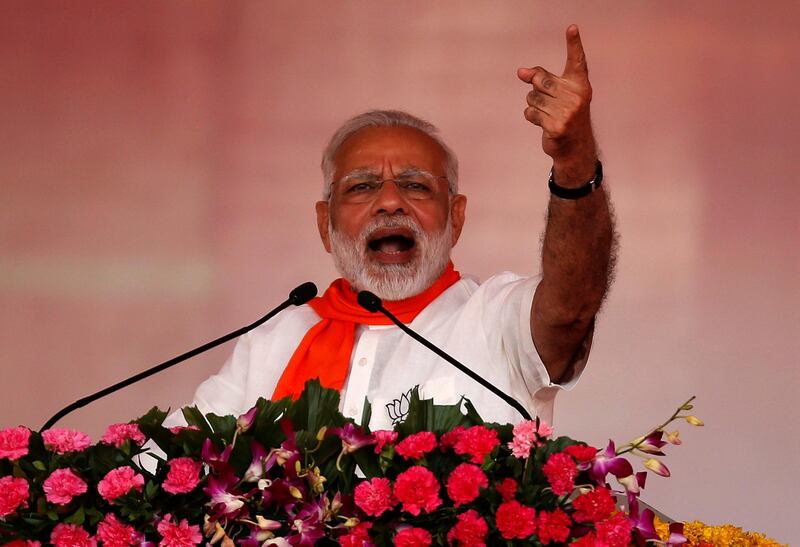Indian prime minister Narendra Modi's ruling party came under fire on Saturday for demanding cuts to a film that it said showed "anti-Modi hatred".
A scene in the Tamil-language film Mersal shows a character delivering a fiery monologue in which he attacks the government's failure to provide free public health care despite charging a national goods and services tax (GST) of up to 28 per cent.
"People are paying seven per cent GST in Singapore and receiving free medical care. The Indian government is taking 28 per cent GST from people. Why can't the government provide free medical care?" says the character, played by south Indian star Vijay, who goes by one name.
The scene sparked an uproar among members of the ruling Bharatiya Janata Party (BJP) who have called for it to be deleted from the film.
H Raja, the BJP's national secretary, said the film showcased "Vijay's anti-Modi hatred" as he countered the claims made in the movie.
"It's a lie that medical treatment is free in Singapore," he tweeted on Friday.
The BJP's demands for a cut to the film sparked anger on social media, where hashtags #Mersal and #MersalvsModi were trending on Saturday after many users accused the party of curbing freedom of expression.
Political rivals also attacked the Hindu nationalist party's censorship demands.
"Mr Modi, cinema is a deep expression of Tamil culture and language. Don't try to demon-etise Tamil pride by interfering in Mersal," Rahul Gandhi, vice president of the opposition Congress party, tweeted on Saturday, referring to the government's controversial cash ban, the so-called demonetisation, imposed last year.
The GST, which came into effect on July 1, was designed to replace a web of state and national levies and transform India's US$2 trillion (Dh7.35 trillion) economy into a single market for the first time.
But critics have said the tax's complex structure - with four main rates ranging from five to 28 per cent - has confused businesses, hurt sales and put the brakes on growth in Asia's third-largest economy.
Mersal released on Wednesday to record earnings and has been running to packed theatres.





